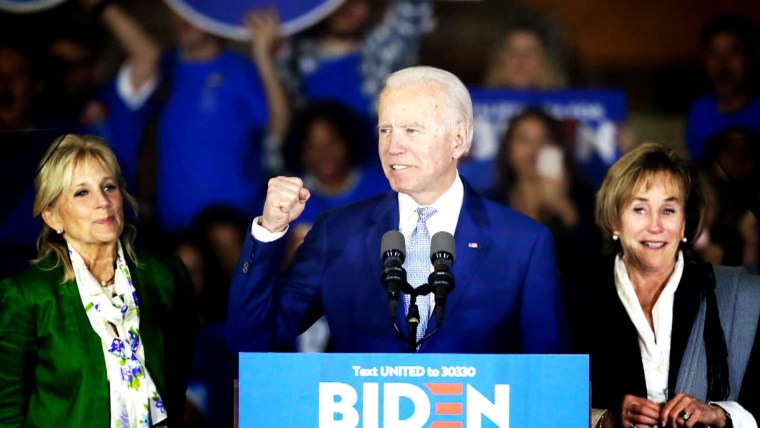Democratic voters in six states will make their choices for president known Tuesday, when more than 350 delegates are at stake.
Joe Biden has been rising in the polls since his Super Tuesday surge — when he won 10 states, building on a decisive victory in South Carolina — but Bernie Sanders will compete in several states that handed him victories in 2016.
Here’s what the latest polls show could happen:
Michigan: Biden up big
A Detroit Free Press poll released Monday found that Biden has a 24-point lead over Sanders, with the former vice president drawing 51 percent of Democratic voters’ support to Sanders’ 27 percent. A Monmouth University poll, also released Monday, saw Biden with 51 percent of likely Democratic primary voters, while 36 percent supported Sanders. The RealClearPolitics polling average puts Biden up by 22.6 points.
Still, the Free Press noted, Sanders overcame a similar polling margin to win the state four years ago: The paper’s 2016 survey by the same pollsters gave Hillary Clinton a 25-point lead, but Sanders eventually won by 1.4 percentage points thanks to an unexpected surge of younger voters.
Let our news meet your inbox. The news and stories that matters, delivered weekday mornings.
Washington: Neck and neck
Biden has a narrow lead in Washington after eroding Sanders’ early lead with his Super Tuesday momentum. According to the RealClearPolitics polling average, Biden’s up by 2 points over Sanders.
The progressive-leaning state has 89 delegates — it’s the second-biggest trove of the day after Michigan — and Sanders won it handily in 2016.
Missouri: Biden up by double digits
Biden’s got another substantial lead in Missouri, where the RealClearPolitics polling average has him up by 18.6 points. His lead appears to have expanded in the days since Super Tuesday, too.
Sanders lost here by just 1,531 votes in 2016.
Mississippi: Biden favored
There hasn’t been much polling in Mississippi, but Biden is heavily favored to win by a large margin, in part because of the state’s high turnout from black voters.
Idaho: ?
There are 20 delegates at stake in this state, but there’s no polling to shed light on how it might vote.
Sanders won by 57 points in 2016.
North Dakota: ?
North Dakota will allocate 14 delegates based on the result of the caucus, but there’s no polling here to indicate how it will go. Sanders handily won North Dakota’s low-turnout caucuses in 2016, when they were held in June.













